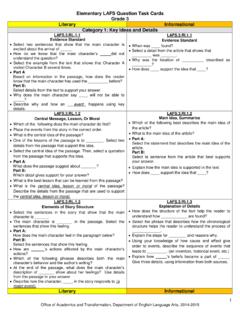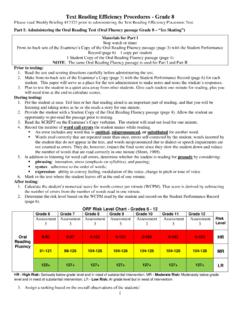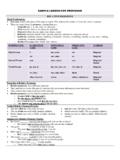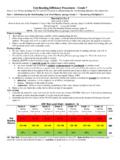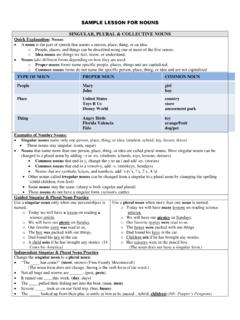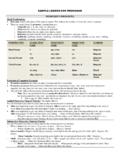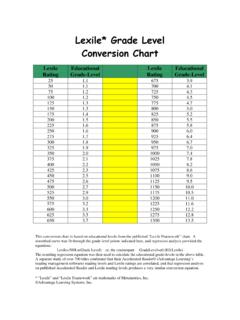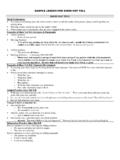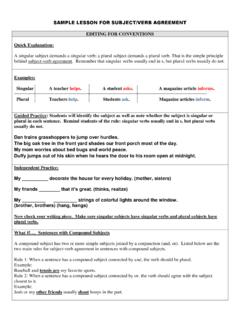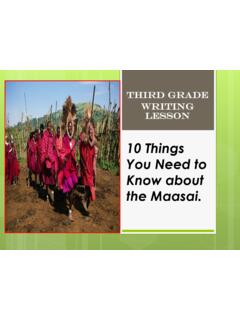Transcription of WHAT WILL YOUR CHILD LEARN?
1 what will your CHILD learn ? Grade Level Expectations Building the stamina and skills to read challeng-ing fiction, nonfiction, and other materials is fundamental in 4th grade. your CHILD will con-tinue to learn about the world as well as build vocabulary skills by reading more compli-cated stories and poems from different cultures and a range of books on history, sci-ence, art, and music. Fourth grade students also will make important strides in their ability to explain plainly and in detail what a book says both explicitly and what is implied from its details. By 4th grade, your CHILD will be writing effective summaries, book reports, and descriptions of characters or events that use correct grammar and punctuation. A Sample of what your CHILD will Be Working on in Fourth Grade Describing the basic elements of stories such as characters, events, and settings bydrawing on specific details in the text Paying close attention to key features ofinformational books and articles: these in-clude understanding the main and support-ing ideas; being able to compare and con-trast information.
2 And explaining how theauthor uses facts, details, and evidence tosupport particular points Comparing ideas, characters, events, andsettings in stories and myths from differentcultures Writing summaries or opinions about topicssupported with a set of well-organized facts,details, and examples Independently conducting short researchprojects on different aspects of a topic us-ing evidence from books and the Internet Paraphrasing and responding to informationpresented in discussions, such as compar-ing and contrasting ideas and analyzing evidence that speakers use to support par-ticular points Reporting orally on a topic or telling a storywith enough facts and details Writing complete sentences with correctcapitalization and spelling Relating words that are common in readingto words with similar meanings (synonyms)and to their opposites (antonyms)How can I help my CHILD at home? Learning does not end in the classroom. Children need help and support at home to succeed in their studies.
3 Try to create a quiet place for your CHILD to study every day uninterrupted by friends, siblings, or other distractions. At home, you can play an important role in setting high expectations and supporting your CHILD in meeting them. You should also try to sit down with your CHILD at least once a week for 15 to 30 minutes while he or she is doing homework. This will keep you informed about what your CHILD is working on. By taking small steps, you will be helping your CHILD become successful both in and outside the classroom. Urge your CHILD to use logical arguments to defend his or her opinion. If yourchild wants a raise in allowance, ask him or her to research commonsenseallowance systems and, based on that research, explain reasons why, sup-ported by facts and details. Talk about the news together. Pick one story in the news, read it together,and discuss with your CHILD what it means. Keep books, magazines, and newspapers at home.
4 Make sureyour CHILD sees you Grade2017-2018 District Resources English Language Arts Website LAFS Task Cards Author s Purpose/Perspective Text Structures Context Clues Chart Summary Frames Topic/Main Idea/Theme Digital Links iReady: C-Palms: the Core: myON Reader: Sunshine State Young Reader Award Program: M-DCPS, Office of Academics and Transformation, English Language Arts Elementary, 2017-2018 Information provided by.
